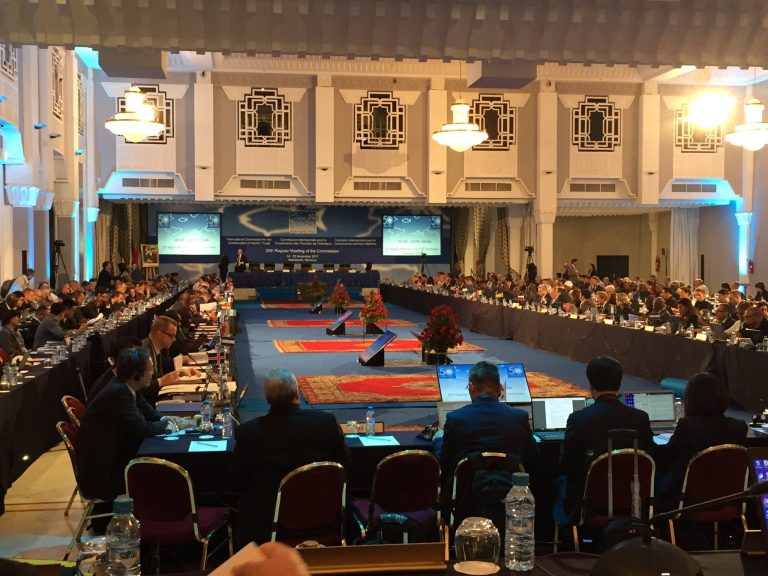Our policy work is centered around using the collective IPNLF voice to advocate for improved domestic and international management of global tuna fisheries. We aim to protect against overfishing, reduce bycatch of vulnerable species, and improve governance by strategically engaging IPNLF members in key national, regional, and multilateral negotiations.

On a national level, we work closely with governments to help them understand the rules, regulations and international framework of fisheries and what these mean for their respective nations. We collaboratively create and execute projects to improve their alignment with international policy as well as work to improve their engagement with RFMOs.
Our international work ranges from engaging with global initiatives like the UN Global Compact, the FAO Voluntary Guidelines for Small Scale Fisheries, the Global Dialogue on Seafood Traceability (GDST), and the UN Global Compact. We also participate in Intergovernmental fora, such as the Committee on Fisheries (COFI) and the United Nations Conference on Trade and Development (UNCTAD) where we have observer status which allows us to gain real insights and scope in taking a social sustainability approach to fisheries development.
– Martin Purves, IPNLF Managing Director
As tuna species are highly migratory, management of tuna populations span wide geographical areas that are organised into Regional Fisheries Management Organisations, or ‘RFMOs’.
IPNLF actively participates at three of the five tuna RFMO’s; International Commission for the Conservation of Atlantic Tunas (ICCAT), Western & Central Pacific Fisheries Commission (WCPFC), Indian Ocean Tuna Commission’ (IOTC), and has observer status at the Inter-American Tropical Tuna Commission (IATTC).
A number of organisations provide recommendations to RFMOs on how policies should be implemented to ensure sustainable fisheries management. For example, the Outermost Regions Advisory Council (CCRUP) which is a recently formed regional EU stakeholder-led organisation that provides the European Commission and relevant EU countries with recommendations on fisheries management matters. Similarly, the Long Distance Advisory Council (LDAC), a group made up of more than 50 members from 12 EU coastal Member States who represent relevant stakeholders in and outside of the fisheries sector, provide advice to promote the sustainable use of fishing resources.
Policy decisions taken at RMFOs have wide reaching implications for companies sourcing tuna. If tuna stocks are poorly managed and overfished, this can result in public pressure for companies to respond through advocacy efforts or through adjusting their procurement decisions to source tuna from elsewhere. As an active participant in RFMO fisheries management discussions, IPNLF also acts as a key resource for many of our commercial members in terms of fully understanding the implications of policy outcomes, and subsequently offer a range of support in how best to respond though public communications or advocacy efforts.
Please find recent RFMO policy documentation on the Resources page
IPNLF has influenced the production of many policies within the tuna fishing industry, to give small-scale fishermen a voice. Please find all recent RFMO policy documentation on the Resources page